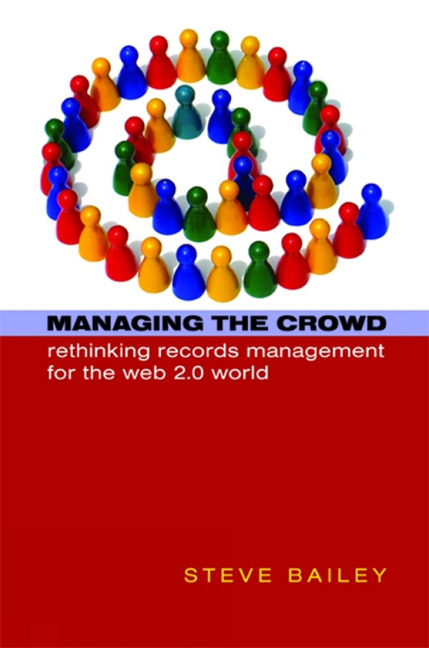Summary
Imagine An Organization where users are free to describe the content they create as they see fit. Where they help decide the retention and disposal of every record that they create or use, based on how useful and valuable they deem it to be. Where, based on a combination of their thoughts and actions, they are responsible for determining who can use the information they create and who cannot.
To many records managers this probably sounds like a recipe for chaos, an anarchic organization which is out of control and where the user is king – the very antithesis of what records management should strive to achieve. Indeed, many would say that this represents a vision of exactly the kind of future that the records manager is fighting an increasingly desperate rear-guard action to prevent.
But what if, rather than railing against it, we were actively to embrace it? What if just for once the records management profession were not to ignore the march of technology, or to try to fight against it, but to harness it, and to turn it to our advantage, in pursuit of the same fundamental goals and objectives that have driven records management for half a century? What if we were to use the wisdom of the crowd to manage the crowd?
A dozen flaws implicit in this premise probably spring to mind, followed by a hundred scenarios in which it couldn't or wouldn't work – all of which may well prove true. If we had a better alternative these reservations might well be enough to kill such unorthodox views at birth, but the stark fact we must face up to is that we don't. The orthodox approach to managing records is rapidly reaching the limits of its effectiveness. Within a few short years the changes to our organizations, our society and our culture, driven by the new technical paradigm into which we are now moving, threaten to make the way we currently manage our records obsolete.
Anyone doubting the ability of technology to fundamentally change records management should think back to the very origins of the profession itself. For at its core, records management, as we know it both in theory and practice, stemmed largely from the need to find ways of coping with the sudden increase in paper following the introduction of new copying technologies and the eventual invention of the photocopier.
- Type
- Chapter
- Information
- Managing the CrowdRethinking records management for the Web 2.0 world, pp. xvii - xxPublisher: FacetPrint publication year: 2008



